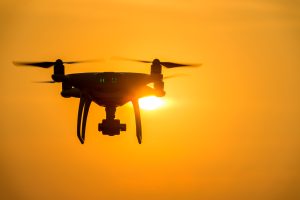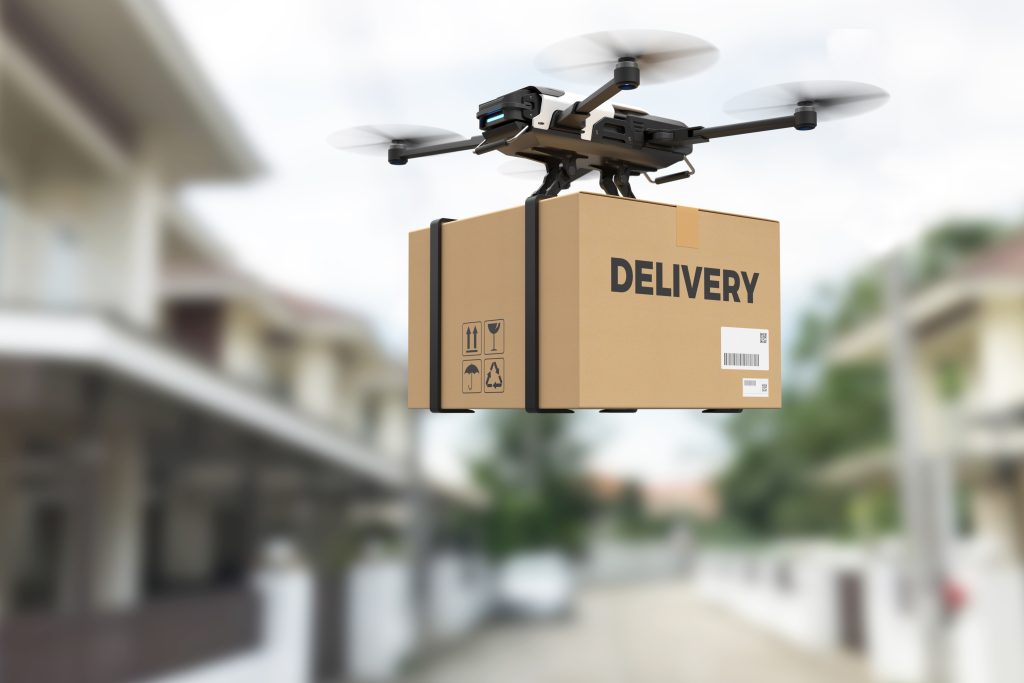In recent years, the courier industry has witnessed a remarkable transformation with the integration of cutting-edge technologies, none more promising than the rise of drone delivery. As consumers increasingly seek faster, more efficient, and eco-friendly delivery options, drones have emerged as a revolutionary solution, promising to redefine the way packages are transported.
Overview of Drone Technology in Courier Services

Drone technology, once confined to military applications and hobbyist pursuits, has rapidly advanced to offer practical solutions in commercial settings, particularly in the logistics and delivery sector. These unmanned aerial vehicles (UAVs) are equipped with sophisticated navigation systems, high-resolution cameras, and precision control mechanisms, enabling them to navigate complex airspace and deliver packages with pinpoint accuracy.
Benefits of Drone Delivery:
1. Speed and Efficiency: Drones have the potential to significantly reduce delivery times, especially for time-sensitive shipments. By bypassing traffic congestion and other logistical challenges, drones can expedite deliveries and provide customers with same-day or even same-hour service.
2. Cost-Effectiveness: While initial investments in drone technology may be substantial, the long-term cost savings are substantial. Drones eliminate the need for traditional delivery vehicles and associated operating expenses, such as fuel and maintenance, leading to considerable cost reductions for courier companies.

3. Environmental Sustainability: With a focus on reducing carbon emissions and minimizing environmental impact, drone delivery offers a greener alternative to traditional transportation methods. By utilizing electric-powered drones, courier companies can significantly decrease their carbon footprint and contribute to sustainability efforts.
4. Accessibility: Drones can reach remote or inaccessible areas that are challenging to access via conventional delivery methods. This increased accessibility opens up new markets and opportunities for businesses to serve customers in rural or underserved communities.
Challenges and Considerations:
Despite its tremendous potential, drone delivery also presents several challenges and considerations that must be addressed:
1. Regulatory Compliance: The widespread adoption of drone delivery hinges on regulatory approval and compliance with aviation authorities’ guidelines. Regulatory frameworks governing airspace management, safety standards, and privacy concerns must be carefully navigated to ensure the safe and responsible operation of drones.
2. Airspace Integration: Integrating drones into existing airspace systems requires collaboration between government agencies, aviation stakeholders, and technology providers. Developing protocols for airspace management, traffic coordination, and collision avoidance is essential to prevent potential conflicts and ensure the safe coexistence of manned and unmanned aircraft.
3. Security and Safety: Safeguarding drones against unauthorized access, interference, or malicious attacks is paramount to ensure the integrity and reliability of delivery operations. Implementing robust cybersecurity measures and encryption protocols can mitigate security risks and protect sensitive data transmitted by drones.
4. Technological Limitations: While drone technology has advanced rapidly, certain limitations, such as payload capacity, flight range, and adverse weather conditions, still pose challenges for widespread adoption. Continued innovation and research are needed to overcome these technical constraints and enhance the performance and capabilities of drones.
The Future of Drone Delivery:
Despite the hurdles and complexities, the future of drone delivery appears promising, with ongoing advancements in technology, regulatory frameworks, and industry collaboration. As drone technology matures and regulatory barriers are addressed, we can expect to see a proliferation of drone delivery services across various sectors, including e-commerce, healthcare, and logistics.
In conclusion, drone technology represents a transformative force in the courier industry, offering unparalleled speed, efficiency, and sustainability. While challenges remain, the potential benefits of drone delivery are too compelling to ignore, heralding a new era of innovation and opportunity in the world of logistics. As stakeholders work together to overcome obstacles and unlock the full potential of drone delivery, we stand on the brink of a revolution in how goods are transported and delivered, shaping the future of commerce and connectivity.

